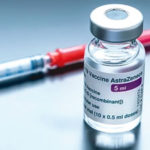
If you have any form of diabetes, even if it is well-controlled, it is strongly recommended to get a flu vaccine. In this report by SADE OGUNTOLA, experts say that with diabetes, the overall risk for catching the flu and having complications from it is higher than for those who do not have diabetes.
Nowadays, because of the COVID-19 pandemic, having the flu vaccine is more important than ever. Getting sick with flu could weaken the immune system further and take risks for COVID-19 infections and its complications higher. What’s more, for individuals with diabetes, taking active steps to keep it under control is very important. This can help protect from a range of more serious health problems, including those that can spiral from the flu or influenza.
Dr Adeola Fowotade, a consultant clinical virologist, University College Hospital (UCH), Ibadan, said the influenza virus is an ever-present global threat whose symptoms are often mistaken for the common cold. She spoke at the hospital’s hybrid grand round and scientific meeting with the theme ‘The Value of Influenza vaccination in Nigeria.’
According to her, influenza is a viral infection that circulates worldwide and causes seasonal epidemic; the infection is usually self-limiting except in high-risk groups and its symptoms range from mild to severe.
Anyone can get influenza, it is highly contagious. The viruses are spread when an infected person coughs or sneezes small virus-containing droplets into the air. Moreover, touching contaminated surfaces (including hands) and then touching the mouth, nose or eyes can also lead to infection.
Flu symptoms include fever, cough, sore throat, runny or stuffy nose, body aches, headache, chills and fatigue, sometimes accompanied by vomiting and diarrhoea. The body aches tend to be a key warning sign for most people that they have the flu, rather than a cold.
Dr Fowotade, however, said that elderly persons, children, pregnant women, persons with chronic illnesses like diabetes and cancer are at a higher risk of developing the severe or fatal form of influenza, thus the need for them to have a yearly flu vaccination.
She added “individuals are protected by the vaccine after two weeks; the protection rate is about 70-90 per cent if the vaccine strains coincide well with the circulating strains. Even if the protection rate is clearly lower in the older population, a severe disease requiring hospitalisation and the fatal outcome is reduced by 50 per cent among the vaccinated population.”
Dr Oluwajimi Sodipo, the influenza site coordinator at Lagos State University Teaching Hospital (LASUTH), said there are cases of influenza all year-round in Nigeria, but with an upsurge of cases from August to October.
Sodipo who is also the head of the Department of Family Medicine, LASUTH, said reports on the infection in sentinel centres across Nigeria indicated that influenza remains a cause of severe acute respiratory illness and it tends to be commoner in the extremes of age.
According to him, severe acute respiratory illness is common among those with long-standing diseases such as diabetes, chronic kidney disease, among others, hence the need to take steps to prevent it through vaccination and incorporating treatment measures.
Professor Adesoji Fasanmade, an endocrinologist at the UCH, Ibadan, stated that there’s increasing evidence supporting the likelihood of certain infectious diseases, such as influenza, pneumococcal disease, tetanus, diphtheria and hepatitis B, occurring and making chronic illnesses like diabetes worse.
He added, “the complications actually increase several folds, especially at the peak of the influenza season. So the best thing is to prevent or reduce the severity of the infection through yearly vaccination. The virus mutates every time, so there’s a different strain of flu circulating every year. The vaccination needs to be given at the peak or preceding the peak of the infection.”
The diabetes expert stated that “individuals with diabetes are 3 to 6 times more likely to be hospitalised from influenza and have a six-fold increased risk of death from influenza complications. Also, influenza may interfere with blood glucose levels, leading to increased risk of problems in organs of the body such as the eye, brain, heart and the kidney.“
Flu and infections can worsen blood glucose control and exacerbate diabetes symptoms, particularly in people whose diabetes is poorly controlled. This can lead to more serious conditions. Glucose control can become even more difficult to treat when steroids may be necessary for managing flu complications like pneumonia and bronchitis.
Also, those with uncontrolled diabetes can also develop severely high blood sugars, which can lead to a hyperglycemic state or diabetic ketoacidosis, both of which require hospitalisation
Professor Fasanmade, however, stated that diabetes is now a significant cause of premature deaths because every eight seconds, someone with diabetes dies and one or two of them are younger than 60 years.
He declared that diabetes is increasing at an alarming rate world over and they are 2 to three times more likely to have cardiovascular disease than people without diabetes. These can also become worse if they catch flu.
However, he declared that influenza vaccination was associated with hospitalisation reduction from complication related to the flu and other serious sicknesses such as pneumonia, bronchitis, sinus infections, and ear infections, in people with diabetes.
Professor Fasanmade said it is important that the government ensures that individuals at high risk of flu get the yearly jab because the circulation of influenza viruses have been associated with economic burden in terms of healthcare costs from physicians visits and hospitalisation, lost days of work or education and general social disruption.
Moreover, researchers in a new study said that there is a reduced hospitalisation among people with diabetes with multi-season influenza vaccination. The 2020 study published in Clinical Infectious Diseases found that among people with diabetes, influenza hospitalisations decreased for those who received the influenza vaccine in both the current and prior influenza seasons.
The analysis evaluated the influenza vaccine effect over the course of six seasons (2013 to 2014 to 2018 to 2019) in patients with influenza-like illnesses in Navarre, Spain. The researchers compared the vaccination status in confirmed influenza cases against negative controls in a cohort of inpatients who all had diabetes as well as inpatients against outpatients who all also had influenza and diabetes.
When compared with unvaccinated patients in the current and prior seasons, the average effect of vaccination in preventing influenza hospitalisation was 46 per cent for the current season and 44 per cent in prior seasons; this suggested that vaccination in prior seasons maintained a notable protective effect.
Also, the vaccination effects against influenza hospitalisations in patients with diabetes were not inferior to that in older patients or patients with chronic conditions.
Is there an “official” medical recommendation that all people with diabetes need a flu shot? The American Diabetes Association (ADA) 2019 Standards of Medical Care in Diabetes and the Centers for Disease Control and Prevention (CDC) provide vaccination recommendations for adults with diabetes, specifically influenza, pneumococcal, and hepatitis B vaccinations.
What is more, for extra safety, it’s strongly recommended to follow the common-sense rules for preventing seasonal flu and other communicable illnesses and diseases: cover coughs, wash hands often, stay home if sick, and avoid spending time in the presence of sick people. Many illnesses and diseases spread through contact with body fluids. This is commonly through being coughed on or in close contact with an infected person by hugging or kissing them.
YOU SHOULD NOT MISS THESE HEADLINES FROM NIGERIAN TRIBUNE
We Have Not Had Water Supply In Months ― Abeokuta Residents
In spite of the huge investment in the water sector by the government and international organisations, water scarcity has grown to become a perennial nightmare for residents of Abeokuta, the Ogun State capital. This report x-rays the lives and experiences of residents in getting clean, potable and affordable water amidst the surge of COVID-19 cases in the state.
WATCH TOP VIDEOS FROM NIGERIAN TRIBUNE TV
- Let’s Talk About SELF-AWARENESS
- Is Your Confidence Mistaken for Pride? Let’s talk about it
- Is Etiquette About Perfection…Or Just Not Being Rude?
- Top Psychologist Reveal 3 Signs You’re Struggling With Imposter Syndrome
- Do You Pick Up Work-Related Calls at Midnight or Never? Let’s Talk About Boundaries






